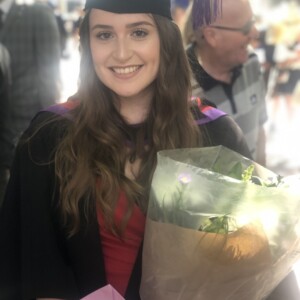
Teri Hansford
University of Warwick
Project
The application of sedaDNA to landscape archaeology
Supervisors
- Prof. Robin Allaby
PhD Summary
The Stonehenge Hidden Landscapes Project undertook one of the largest terrestrial multi-sensor, archaeo-geophysical surveys in Britain. Whilst most features identified are interpretable or conform to known comparators several exceptional features remain unexplained and are, potentially of considerable importance. These include a series of massive geophysical anomalies related to one of the largest monuments in the region – the Durrington Wall Henge. These anomalies were initially interpreted as dew ponds, however further research concluded that they represent pits 18 metres diameter and up to 4.8 metres deep. My project aims to used sedimentary DNA (sedaDNA) analysis to assess the function and depositional environments of these pits.
Previous activity
Prior to starting my PhD, I completed a BSc Hons and MRes in Biochemistry at the University of Portsmouth. During my undergraduate and MRes projects, I focused on DNA analysis of archaeological samples collected from the Mary Rose wreckage, specifically human and animal remains.
Why did you choose doctoral research?
Whilst conducting my research for my MRes project, I realised I thrived in a lab environment, and found that using DNA sequencing to unlock answers to historical questions was fascinating to me. Although my MRes allowed me to delve into this field, on completion I felt I had more to offer and wanted to continue to contribute to the field.
Why did you choose CENTA?
I chose CENTA as it offered me the opportunity to build on the training opportunities offered by my institution, with an interdisciplinary focus. I liked the idea of networking with other researchers from other institutions and disciplines in order to compliment my work and start scientific discussions. I was also drawn to CENTA due to the placement opportunity at an external organisation.
Future plans
Upon completion of my PhD I would like to stay within academic research. I feel the skills gained from both my institution and the CENTA programme will allow me to succeed in achieving this.
